Often times the dangers become one Gambling addiction misunderstood. As with other addictions, the consequences can often be severe. Gambling addiction is to be distinguished from internet addiction and computer gaming addiction, although they can be related to one another.
What is gambling addiction?

© motortion - stock.adobe.com
The Gambling addiction is also referred to as in psychology and psychiatry pathological (morbid) gambling or compulsive gambling. Gambling addiction manifests itself, among other things, in the fact that it is not possible for an affected person to resist the temptation to take part in games of chance or betting.
And not only are the actions of a person affected by gambling addiction influenced by gambling, but also their thinking often revolves around this topic. In addition, gambling addiction is expressed in the fact that those affected are usually aware that gambling can lead to serious consequences in their private or professional environment.
As a rule, men are more likely to experience gambling addiction than women. It is estimated that around 100,000 to 300,000 people in Germany suffer from gambling addiction.
causes
Possible causes one Gambling addiction are diverse and vary depending on the person affected. It is often not possible to clearly define the causes of gambling addiction, as different causes usually add up.
One possible motivation behind gambling and thus posing a risk of developing gambling addiction is to want to escape negative feelings. Such negative feelings can include, for example, feelings of guilt or fears, but also depression.
Certain personality variables that can make people prone to gambling addiction are also discussed in science. Furthermore, the environment in which a person grew up and hereditary factors can contribute to the fact that a person concerned is at risk of turning to gambling and, as a result, of developing a gambling addiction.
Symptoms, ailments & signs
Gambling addiction develops in a long, creeping process. The symptoms show up differently in this phase. At first, they are not very pronounced and unspecific. With the increase in the addiction factor, classic signs and complaints appear. The first indication of developing gambling addiction can be euphoric behavior due to initial winnings.
As a result, larger losses increasingly lead to irritable behavior. The person concerned would like to win back the lost money and more and more often supplies himself with unplanned money that is often drawn spontaneously from ATMs. Since the loss should be made up as quickly as possible, the person concerned becomes hectic and unable to concentrate.
This is becoming increasingly noticeable when driving, in the family and at work. Increasingly longer absences are explained by lies. The daily routine is increasingly impaired by the uncontrollable desire to play. Self-esteem changes and manifests itself in depressive moods as well as aggression.
Meals are no longer taken regularly due to gambling addiction. Personal hygiene and a well-groomed appearance are becoming increasingly unimportant for those affected. Existing social contacts are neglected. If there are no more funds of your own to finance gambling addiction, illegal procurement measures can occur.
In addition, those affected try to borrow money. Since working hours are also used to play games, fake sick notes are submitted to the employer. Arguments and lies are increasingly determining relationships based on partnership. Gambling addiction determines life. A high level of debt and your own assessment of a hopeless situation can ultimately lead to suicidal thoughts.
Diagnosis & course
If a victim is suspected of having Gambling addiction For example, a psychologist can check a diagnosis of gambling addiction. This is done, among other things, with the help of a so-called standardized test procedure in which an affected person is asked about his symptoms.
In the literature, a so-called (ideal-typical) three-phase model can be found with regard to the course of gambling addiction in an affected person. According to this, gambling addiction can be divided into the phases of win, loss and desperation: During the win phase, gambling usually takes place quite seldom, a person affected is euphoric and ultimately gambling becomes more frequent.
During the loss phase of gambling addiction, among other things, financial and social losses occur. The desperate phase can ultimately be accompanied by personality changes and sometimes even with suicidal thoughts.
Complications
If gambling addiction is not recognized as such and treated, there is a risk of losing regular everyday life. Gambling addiction affects all areas of everyday life and has serious consequences for the social environment of the person affected. On the one hand, those suffering from gambling addiction experience strong emotional pressure to conceal their problem. They fear being marginalized and despised and often shy away from therapy because of this.
On the other hand, even when dealing openly with their addiction, they experience rejection from friends and family, which can lead to social isolation. This can also result in depression as a complication. Another complication associated with gambling addiction is serious financial problems. These can lead to the fact that those affected lose all possessions and become practically penniless.
This, too, can lead to severe psychological problems which, if left untreated, can lead to suicide. Even with therapy, the long-term consequences of gambling addiction are often so serious that even after the addiction has been overcome, those affected still need psychological support for a long time. Self-esteem has often suffered so severely from the addiction that it is very difficult to resume a structured everyday life.
When should you go to the doctor?
Gambling addiction usually develops slowly and insidiously over a period of several years. Experts speak of different phases. In the first phase, gaming is still perceived as pleasant and does not yet have any harmful effects. In the second phase, after about 2 years, the game takes on excessive proportions and now has a more compulsive character, the player is increasingly losing control of his gaming behavior, the stakes are higher. It got used to it. If sufferers notice such symptoms, they should see a doctor. When gambling becomes addictive, there is increased psychological stress, hands can shake and those affected often sweat profusely. Some are so caught up in playing that they no longer perceive their surroundings for real.
It is important that gambling addicts get help as early as possible because gambling addiction can have fatal consequences for those affected and their relatives. Doctors can use a special questionnaire to assess the extent of the addiction and check whether there are any other disorders in order to initiate suitable treatment. Special psychotherapy against gambling addiction usually helps.
Treatment & Therapy
In many cases Gambling addiction Do not overcome the addiction without therapeutic help. And depending on the phase and severity of gambling addiction, not only those directly affected, but also close relatives of those affected often require professional support. A therapy for gambling addiction often has to integrate various aspects:
In addition to psychotherapeutic help, debt management may also be necessary in individual cases.Psychotherapy for gambling addiction can be carried out on an outpatient or inpatient basis; Which therapeutic measure is suitable for an affected person must be worked out individually. In a first phase of therapy, for example, individual motivations behind playing can be considered and therapy goals can be set.
In a second phase, group discussions with other affected persons can be integrated as part of inpatient treatment. Furthermore, for example, the ability to self-control is trained. In the final phase of psychotherapeutic treatment of gambling addiction, what has been developed is stabilized. Among other things, the person affected is often prepared for possible relapses and receives help that he can fall back on in appropriate situations.
You can find your medication here
➔ Medicines to calm down and strengthen nervesprevention
Since the causes of a Gambling addiction can be very versatile, it is difficult to prevent gambling addiction. One possibility, for example, is to carefully observe the first symptoms in yourself and to control them. If a person has the impression that they are discovering symptoms of gambling addiction, but cannot combat them without help, seeking professional advice early on can prevent them. Everyone who wants to start gambling should be clear: In the end, only the "bank" wins. Everything else is pure illusion.
Aftercare
Follow-up care is of particular importance after inpatient therapy for gambling addiction. It should help those affected to find their way back into everyday life. So he is confronted again with the typical gambling offers.
Outpatient aftercare, which follows on from inpatient treatment, is an important measure. During the stay in the clinic, the patient can apply for follow-up care at a specialist advice center. An important prerequisite for the success of the follow-up treatment is the consistent abstinence from all games of chance, which also include lottery games.
Outpatient aftercare aims to achieve a stable and permanent abstinence from gambling. It also helps the patient to secure his professional performance and to lead an active, self-determined life in work and family again. This also improves the patient's quality of life.
The outpatient aftercare includes group therapy that takes place once a week, as well as regular individual therapy. The partner or relatives can also be included in the therapy by arrangement. Intensive therapy days are also offered.
In normal cases, follow-up care for gambling addiction takes six to twelve months. The initial phase is particularly important because this is where the relapse rate is highest. The cost of outpatient aftercare is usually covered by the health or pension insurance.
You can do that yourself
Gambling addiction is a disease that belongs in the hands of a specialized therapist, especially if it is severe. Nevertheless, there is also a whole range of measures within the framework of self-help with which those affected can contribute to coping with the addiction disease. These are described below, but ideally they should be discussed with the treating therapist.
Self-help groups that specialize in gambling addiction are an important point of contact for those affected. There are people here who know the problem from their own experience and support them with a sensitive exchange of experiences and valuable tips.
It is important that those affected by gambling addiction change the way they spend their free time. Sports, music and other hobbies are some examples. Friends and family are also helpful companions, as gambling addiction often leads to neglect of the all-important social flexions.
If gambling addiction is linked to a money problem, it is important to address that cause. In this context, offices for qualified debt counseling are often a suitable address. If gambling addiction is caused by social problems, it is also important to work on this underlying problem. This can be initiated by the psychologist and implemented step by step through active implementation in everyday life as part of self-help. Alcohol can often restrict control over gambling and should therefore be avoided, as well as visiting gambling halls or visiting casinos on the Internet.

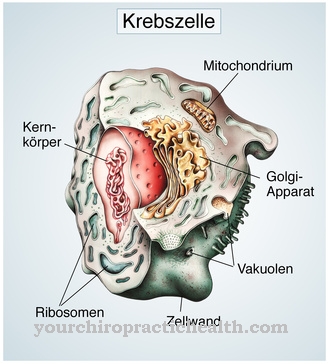
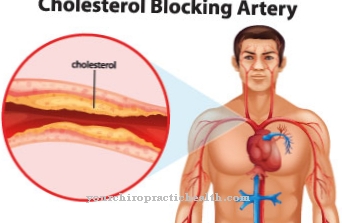
.jpg)
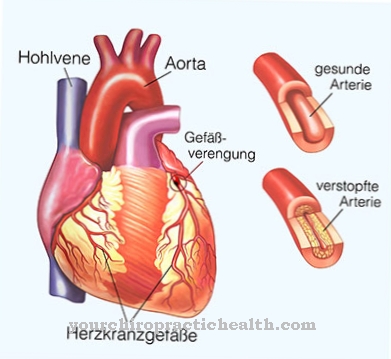
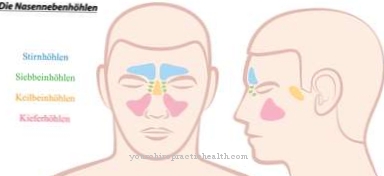
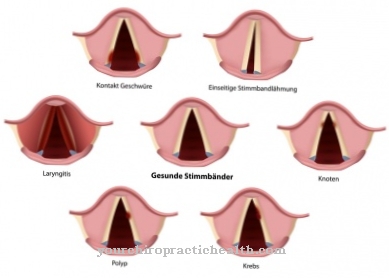






.jpg)

.jpg)
.jpg)











.jpg)